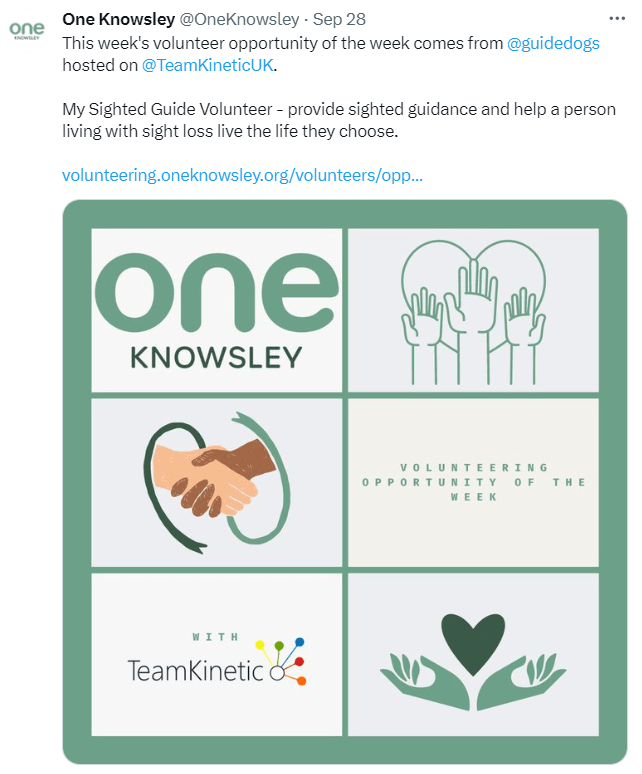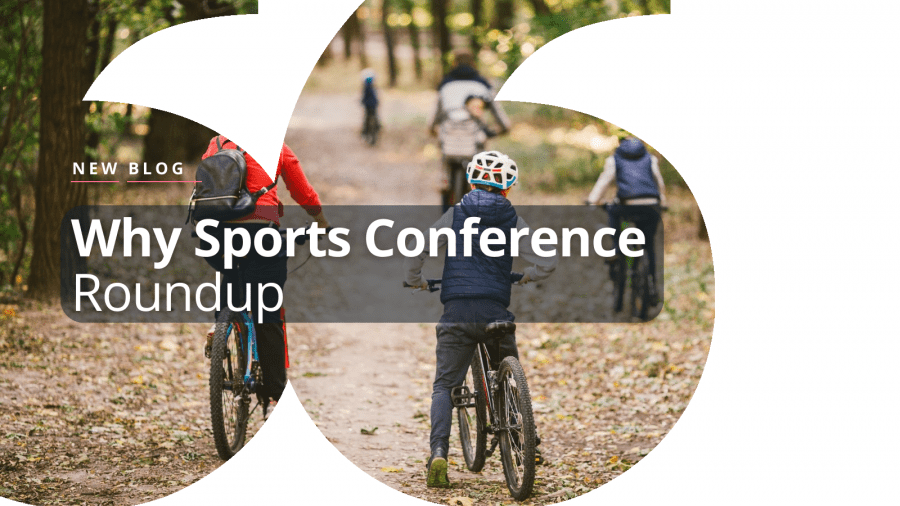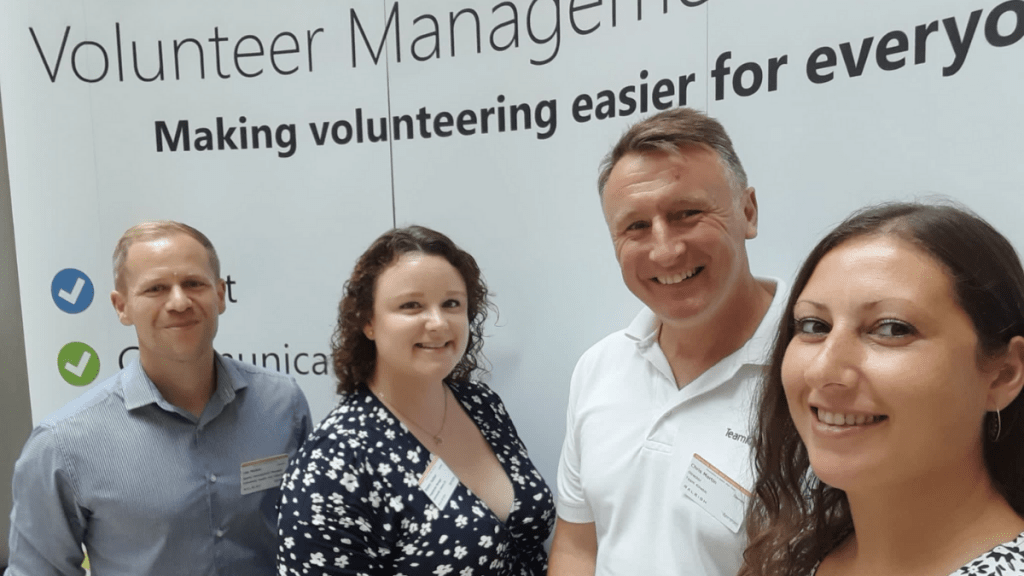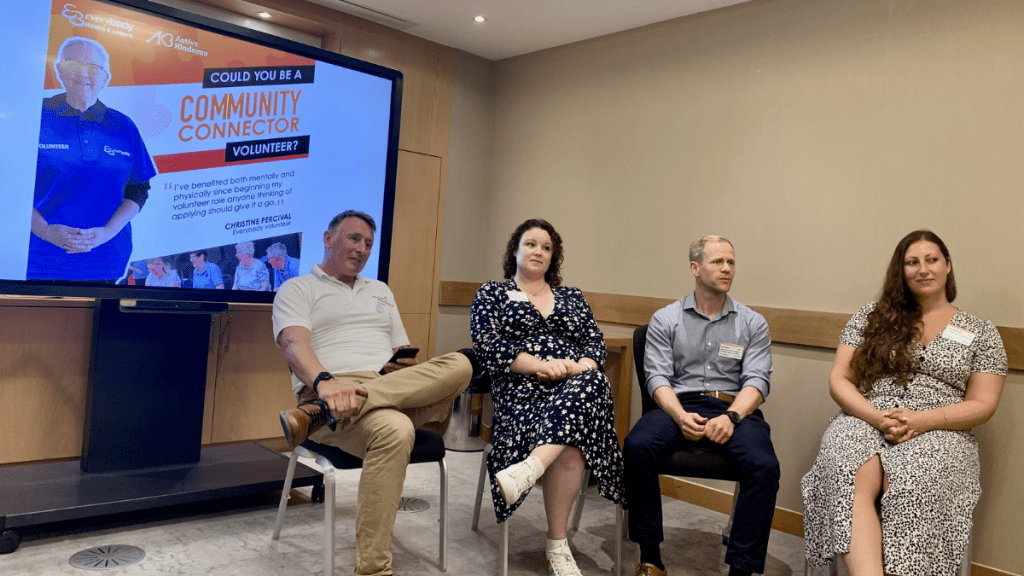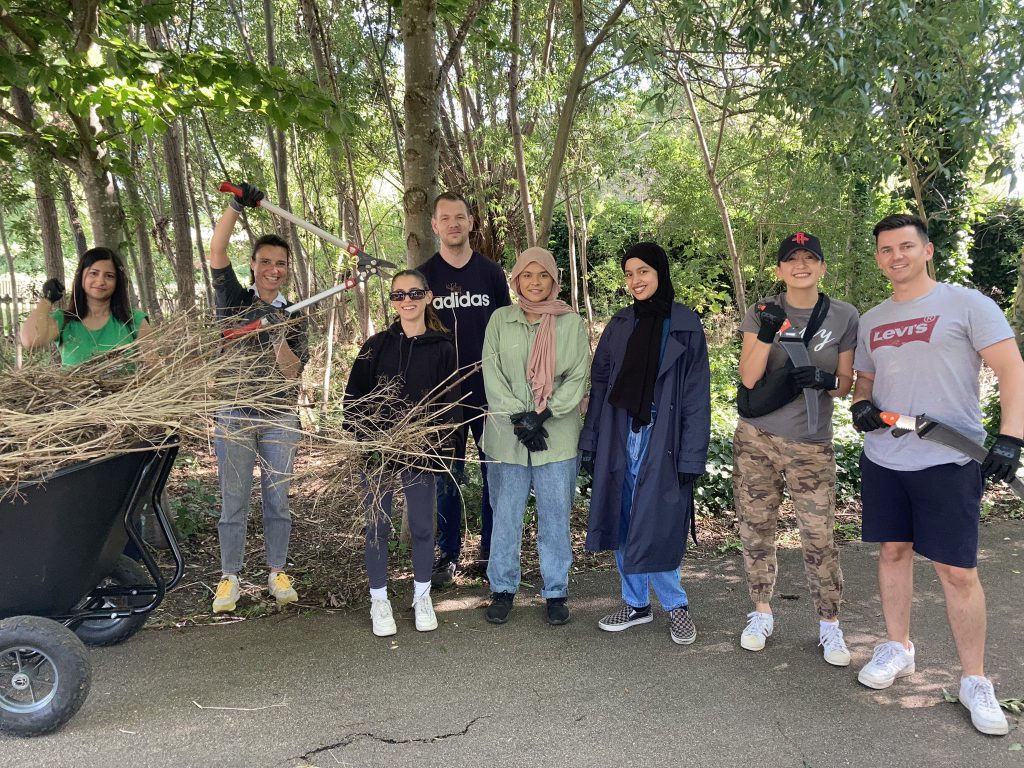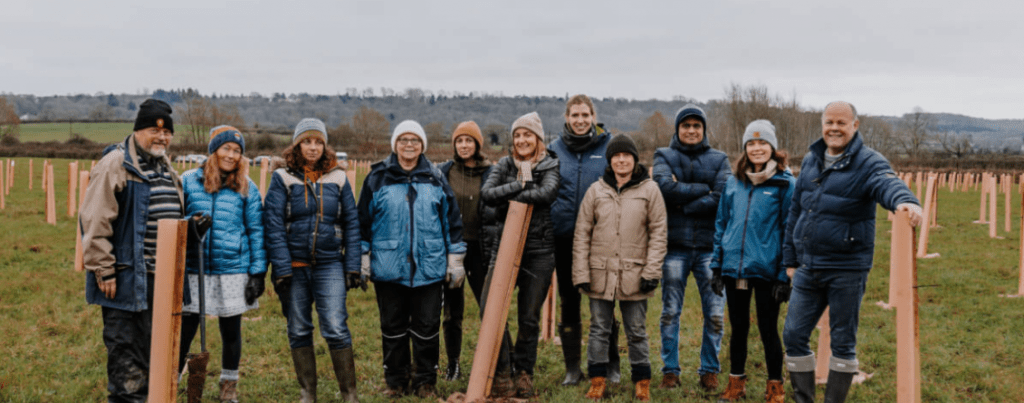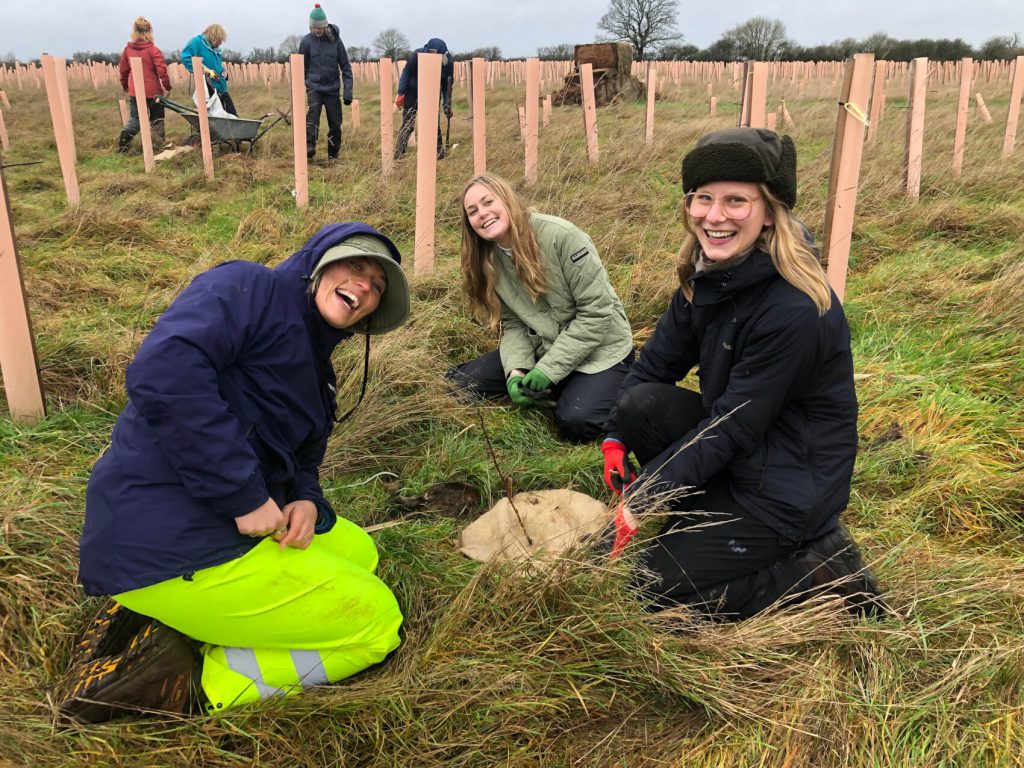The Importance of Website Signposting
For most organisations, their website is the go-to destination for information about what they do, where to find them and who to contact. Therefore, signposting your TeamKinetic site on your organisation’s main website is best practice. Showcasing your current volunteering opportunities inspires involvement with your organisation. Continuity between your website and TeamKinetic site helps to create a more rounded picture of your organisation. This way, volunteers can have insight into their impact and how this benefits the purpose of your organisation.
How?
If possible, be sure to update your volunteering website features regularly. This is key for ensuring you come to the top of online search results. If you have an existing ‘news’ feed, recent and current volunteering events will fit in nicely. Entice those browsing your website with past and present volunteering projects, events and initiatives. Also, collect volunteer testimonies and feature them alongside the opportunity details. Hearing from a volunteer helps to assure prospective volunteers that your organisation is welcoming and personable.
Include a call to action button! For example, ‘Volunteer with us’ or ‘Volunteer now!’. This can be in addition to more detailed opportunity descriptions, or as a stand-alone prompt. If you have less time or resources to create a volunteering news-style feed, simply linking to your TeamKinetic website via a call to action button will be effective. You can link to any relevant area of your TeamKinetic system; specific opportunities, your TeamKinetic homepage or volunteer registration.
Using volunteering-related keywords in your website will mean that those looking for volunteering opportunities with your organisation, or similar, are more likely to be directed to your organisation’s website. Signposting volunteering news and opportunities on your website is a simple way to increase your chances of ranking higher in search results. Optimising your TeamKinetic page for Google search is explored in the TeamKinetic Best Practice – Search Engine Optimisation Signposting guide.
Best Practice Inspiration
An example of best practice website signposting would be Wiltshire Wildlife, who have a tab on their main organisation website that links directly to their TeamKinetic site. In addition to this, their ‘Blog’ and ‘News’ tabs feature regular volunteering opportunity-related updates and information.

More Signposting Best Practice!
For guidance on other best practice signposting methods including in-person signposting, search engine optimisation signposting and social media signposting, click here.
Ensure you follow us on our social media pages to receive regular updates about the voluntary sector and learn more about the TeamKinetic system. You can find TeamKinetic on social media and listen to our podcast:




